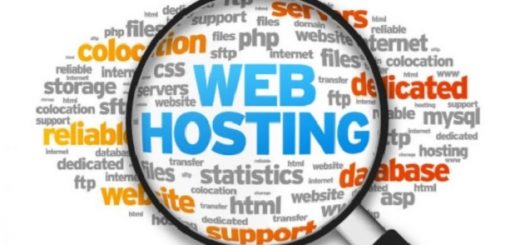IT service providers are going from strength to strength. As IT becomes a more and more irreplaceable part of modern businesses, increasing numbers of companies are looking to outsource their support – rather than put together an in-house team of IT experts.
If IT forms an important part of your business, you might find that outsourcing the support you need is a great way to grow your business in other areas. Here, we’ll look at how using an MSP (Managed Service Provider) can help to make that happen.

Sidestepping recruitment
If you’ve considered the prospect of taking on an in-house IT team, you’ve possibly found yourself out of your depth really quickly.
While you’ve unquestionable got the skills needed to create a team that’s capable of delivering your core service or products – understanding what’s needed from an IT team is a totally different discipline – so, not only do you have to understand exactly what you need from your IT, you also need to know exactly who can administer that for you.
It’s not just the understanding of IT that proves to be a barrier for companies looking for IT support either – the cost can be enormously prohibitive. It’s suggested that taking on one member of an in-house IT team is likely to cost (in actual outlay and the reallocation of resources) around £5,000-£10,000 ($7,000-$14,000) – money that may well be better spend driving your business forward.
When you take on an MSP, you don’t just duck under this recruitment need – you’ll actually attract companies who want you as a client – each (hopefully) bending over backwards to make sure you’re going to receive the service that fits perfectly for your company.
Access to evolving best practice
Although the idea of having a team of in-house experts is appealing – it’s another thing entirely to make sure that their level of expertise remains at the cutting edge of their field.
For instance – you take on a team who understand everything that is to know about your network, a detailed understanding of your SD WAN system – and a good working knowledge of your hosted phones. From this point forward, their expansive best-practice becomes limited to just these systems – unless they’re willing to do a lot of learning in their own time.
With a managed service provider, you’ve got access to IT professionals who are working across a range of systems for dozens (sometimes hundreds) of clients. As a result, they’re coming across and fixing scores of problems every single day – and this is knowledge and expertise that can be fed straight into your IT network should the need arise.
For instance, a managed service provider can use remote phone control to troubleshoot phone issues without traveling to the site of the problem
There’s a lot to be said for having IT experts in seats in your office – but there’s a definite argument that would say sharing professionals with a range of other companies offers a better result when you’re looking to grow.
A service that works around your needs
Businesses tend to succeed because they’re either innovative – or they’re offering a similar service to another company – just better.
Either way, your company is unique – and your IT requirements are also likely to be unique. So, you shouldn’t need to settle for a support package that is an ‘off the shelf’ product. This is where a good managed service provider really distinguishes themselves. Understanding you, your business, your end-users, your customers – and the products or service that you deliver is absolutely crucial for an MSP if they want to be certain they’re delivering a service that meets your business needs exactly.
Managed service providers do this by creating a service level agreement (SLA) that reflects exactly what you need from them – it also documents what, in return, they get from you. This type of agreement is an enormous benefit if you’re looking to grow your business – as you can be certain that you’re always going to get the support you need – which can sometimes be a problem for in-house teams – especially given the unpredictable nature of sickness, leave, resignations and other factors that can send ripples through your IT service.
Cashflow benefits
As a business decision maker, you don’t need us to tell you how important cash flow is – especially in the first few years of operations. When you’re starting out – or hoping to grow – being able to predict your financial situation from month to month is vitally important.
When you work with an MSP, this is exactly what you get – even if your service provider needs to shoulder additional cost or support themselves.
Generally, an SLA will be a ‘maintenance only’ package – with additional costs involved if you need to expand or adapt your network – but obviously, this is another predictable cost that you’ll be able to account for before it occurs.
Growing your business often involves making sure every spare penny goes toward your growth project – so keeping tabs on cashflow can be the difference between seeing your project soar – or flop.
Proactive support
Downtime can literally kill businesses – especially when funds are being channelled into growth projects, as very little is left over to account for the financial impact of time where you can’t access your vital applications or processes.
If you want to avoid downtime, having a good managed service provider on your side is invaluable – as they will often work on your systems 24/7 – making sure you’re never arriving at your office to unexpected surprises. This round-the-clock support comes as a result of network monitoring applications – systems that will alert the user to any issues that are occurring with your IT network. Obviously, this kind of software requires eyes on it through the hours that your in-house IT team would normally have packed up and gone home to sleep – so passing the responsibility to an external supplier will represent an enormous staffing saving too.
Working with a managed service provider to make sure your systems are up at all times isn’t likely to be overly expensive either – as they will usually have a member of staff using monitoring systems for other clients too – so you’re likely to find that 24/7/365 support for your growth projects is more achievable than you might otherwise have thought.




